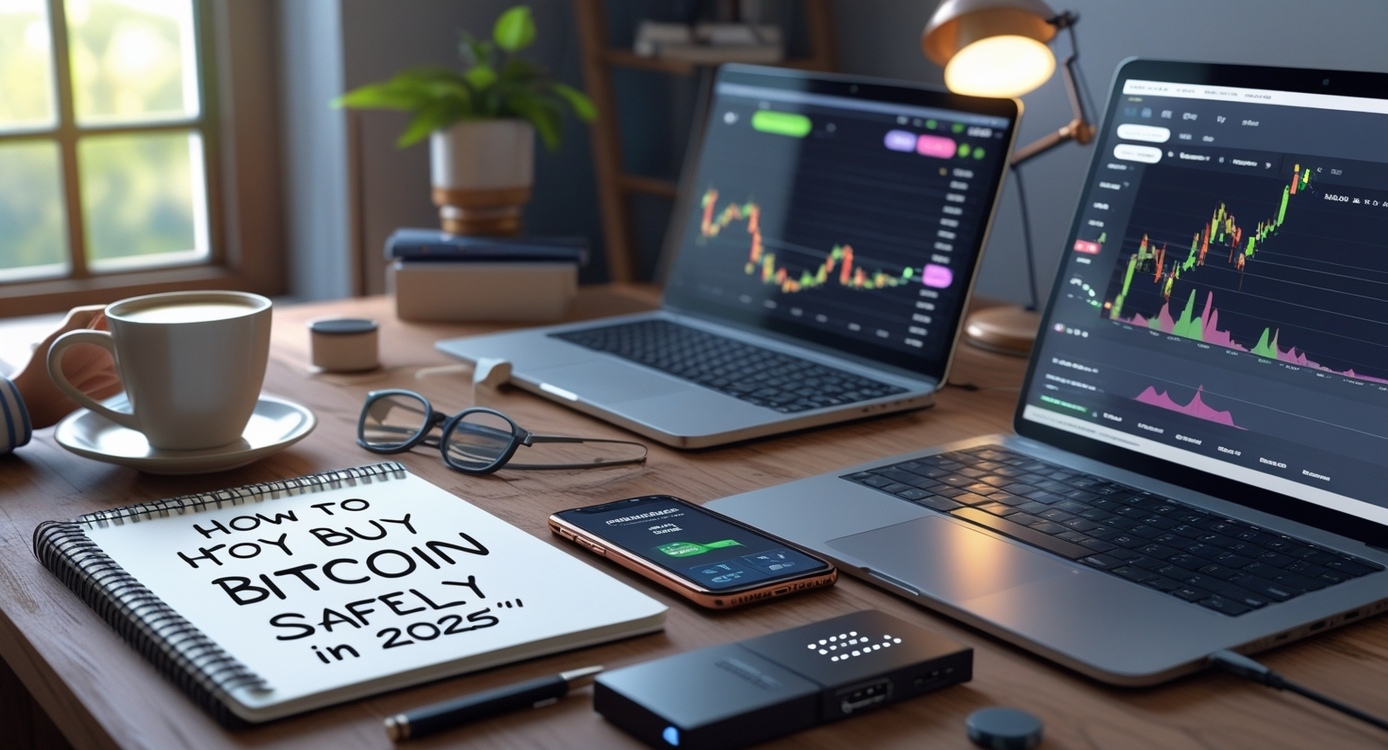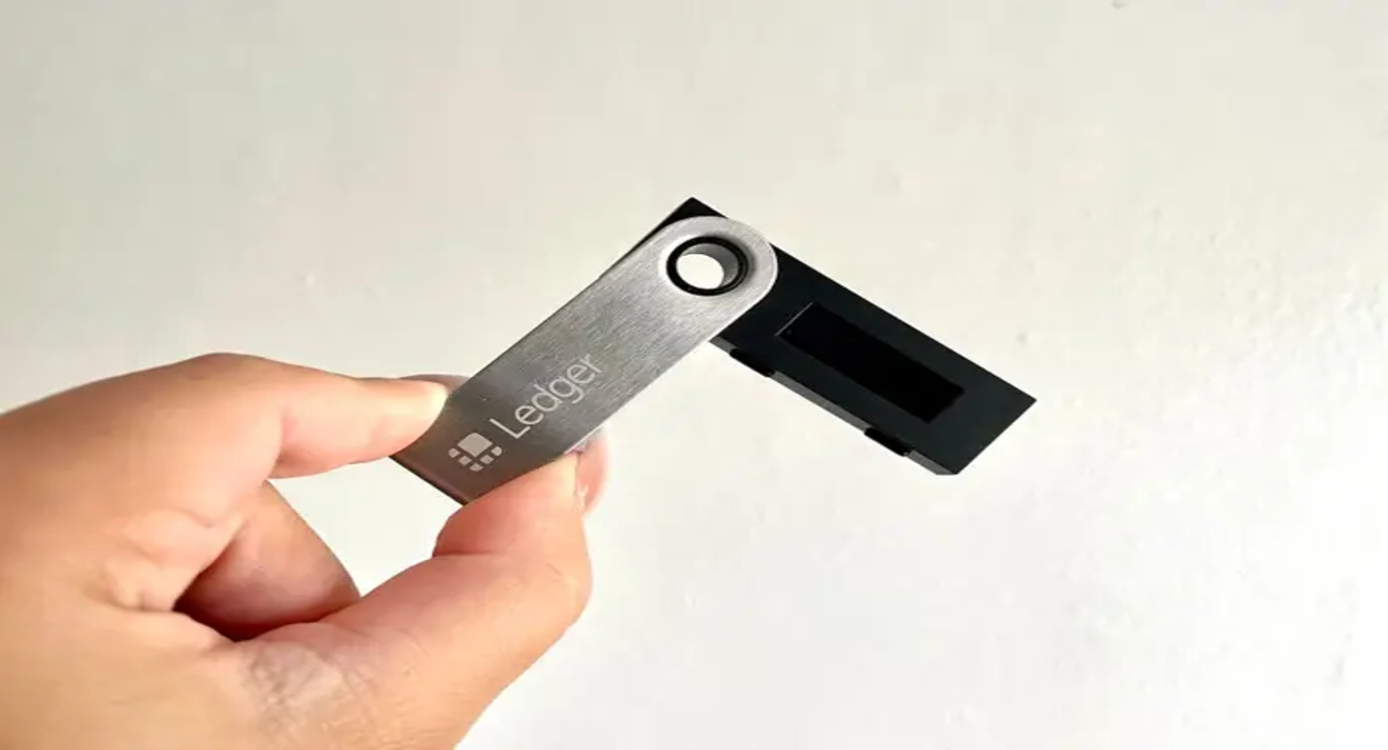News

How to Buy Bitcoin Safely in 2025
The Landscape Has Changed—But Risk Still Exists
In 2017, purchasing Bitcoin frequently involved sending funds to an unidentified Hong Kong exchange and crossing your fingers. The emergence of easy-to-use programs like Coinbase and Binance in 2021 simplified the procedure, albeit it wasn't always safer. By 2025, too? Our ecosystem is more developed, regulated, and intricate.
It's safer, yes. However, that does not automatically imply that it is safe. Hacks continue to occur. Simply put, scams have become more complex. What about privacy? Nowadays, there is a trade-off, particularly if you are using conventional banking systems.
Therefore, let's start with the fundamental: intentionality, before you even consider which app to utilize.
Step 1: Know Why You’re Buying
Though it seems philosophical, this is actually useful. Are you purchasing Bitcoin as an inflation hedge or as a long-term store of value? Or are you attempting to trade in order to take advantage of its volatility? How much risk you take, where you keep it, and how much you should spend are all determined by your rationale.
Here's some honest advice if this is your first time: start small. Not because Bitcoin is dangerous (although it is), but rather because experience—rather than exposure—is the foundation of comfort and confidence.
Step 2: Choose a Reputable On-Ramp
There are three main paths in 2025:
⚪ Centralized exchanges (CEXs) - Consider Coinbase, Kraken, Binance (where permitted), or more recent names like Fidelity Digital Assets or Robinhood Crypto. In many places, these are polished, controlled, and insured.
⚪ Peer-to-peer (P2P) platforms - You can purchase directly from people using services like Paxful or LocalBitcoins (or their successors). More danger and a steeper learning curve, but good for privacy.
⚪ Bitcoin ATMs & financial institutions – In several nations, these have proliferated across banks and cities. Although the experience can feel more conventional, fees are typically higher.
My recommendation? Start with a regulated exchange in your jurisdiction if you're a novice. Be yourself. Turn on two-factor verification (2FA). Connect a reliable bank account. Don't hurry.
Step 3: The Wallet Question—Hot, Cold, or Custodial?
Where do I really keep my Bitcoin? This is where a lot of novices get stuck.
Although they are convenient, exchanges are vulnerable to hacking and changes in policy. Because of political protests in 2022, Canadian users' access to cryptocurrency was blocked. A number of international exchanges have recently faced fines or outright bans. What is the answer, then?
⚪ Custodial wallets: Offered by exchanges. Easy, but you don’t control the keys.
⚪ Hot wallets: Apps like Trust Wallet or BlueWallet. More control, but connected to the internet.
⚪ Cold wallets: Hardware devices like Ledger or Trezor. Not online. Not hackable. The gold standard.
Step 4: Don’t Skip the Education
Bitcoin is more than simply a financial asset; it's a movement, a system, and a prism through which people view the direction of money. This explains why naysayers warn that it's "just digital air" and Maxis preaches that "not your keys, not your coins."
By 2025, safety includes education. Recognize what you're purchasing. Recognize the mining process for blocks. Find out why there is a 21 million coin cap on Bitcoin. Adhere to reputable instructors such as Lyn Alden or Andreas Antonopoulos. Attend a local group and read "The Bitcoin Standard." Pose inquiries.
Step 5: Beware of “Too Good to Be True”
Phishing websites and phony Elon Musk freebies aren't the only scams that exist today. The level of fraud has increased in 2025. You may be tricked by deepfake financial influencers, phony investment apps, and AI-generated voices.
An example from my own life is that a "Bitcoin investment group" on Telegram that appeared to be genuine nearly duped my cousin. They made use of targeted wording, counterfeit wallets, and actual screenshots. Up until it wasn't, the hoax was sophisticated.
Run away from anyone who guarantees cryptocurrency profits. Check again if a platform is pressuring you to make a deposit right away. Additionally, you should never—ever—share your seed phrase or private key. With anybody.
Bonus: Keep a Low Profile
Bitcoin is not private just because it is pseudonymous. Once a wallet is connected to your identity, that trace remains. Blockchain analytics companies are more potent than ever in 2025.
Therefore, maintain good digital hygiene even if you don't have to get completely off the grid:
⚪ Use secure email.
⚪ Don’t post your wallet address on social media.
⚪ Split large buys across wallets.
⚪ Consider privacy tools like CoinJoin or Taproot-enabled transactions if you’re advanced.
Final Thoughts: Bitcoin Is Still Early—And So Are You
If you've gotten this far, you're not merely interested, so welcome to the rabbit hole. You are thoughtful, methodical, and cautious. That's the mentality that protects you against scams, as well as against overexposure, panic selling, and hype-driven regret.
Purchasing Bitcoin in 2025 doesn't have to be scary. All that is required is intentionality. Go slowly. Pick your tools wisely. Learn for yourself. And keep in mind that this is about more than just earning money. It's about realizing the potential of money.
Stick with https://k8airdrop.com/ for more Sports, esport, games, news, guides, and more!
Discover the thrill of cutting-edge online slot games! Visit http://k8.io/ now for an unparalleled gaming experience with the latest and greatest slot games.
Recommended to read

150th Kentucky Derby: Fierceness Emerges as Front-runner Amidst Stiff Competition from Sierra Leone and Forever Young at Churchill Downs
150th Kentucky Derby happening this Saturday! Here's your ultimate guide on what you need to know: When, where, and how to watch the race unfold, alon...
Read more
Get K8 Airdrop update!
Join our subscribers list to get latest news and updates about our promos delivered directly to your inbox.


